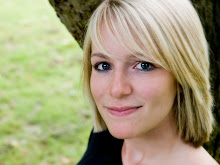The lesson 2/10/08 was interesting to find out what community meant to everyone in the class and the variations (positive and negative). When we did the exercise with getting into height order, I felt quite left out as I was on the end. Being the shortest and tallest made you feel like an outsider as you were on the end of the line. A response from the middle of the line was that they felt safe and accepted. I think that this relates to a community as the different ones (shortest and tallest) do not fit in within the community whereas the similar ones (in the middle) fit in.
In 'The Politics of performance Radical Theatre as Cultural Intervention' by Baz Kershaw, I found a few points interesting and others I could relate to:
- Kershaw comments on how the audiences response changes the performance on stage. I think this is very true as when I was in 'Allo, 'Allo, if the audience were lively and laughed the performance on stage became slightly more exaggerated and dynamic.
- Kershaw refers to Richard Schechner who believes performance is not just the production but the process before and after. I agree with this as when I am part of a production I feel that the cast and crew begin to become a community, as we all work together (most of the time!).
- I think that community theatre involves risk as you are working with a fragmented community and some of the work will involve ideological meaning. Kershaw gives an example of performance and risk, Sean O'Casey's 'The Plough and Stars' which caused riot in 1926. Below is a link that I found that gives you a little more information on this.

1 comment:
Good to have your blog on board Em.
It's interesting that we make assumptions about different areas and the communities that they support. Sometimes areas of financial or cultural deprivation produce very strong communities perhaps as a way of pooling resources perhaps to maintain a secure sense of neighbourhood and belonging. Hackney is a wonderfully diverse borough and of course has its problems, but it is a busy and vibrant place with many local projects and schemes up and running to enhance the lives of those who live there.
Mark
Post a Comment